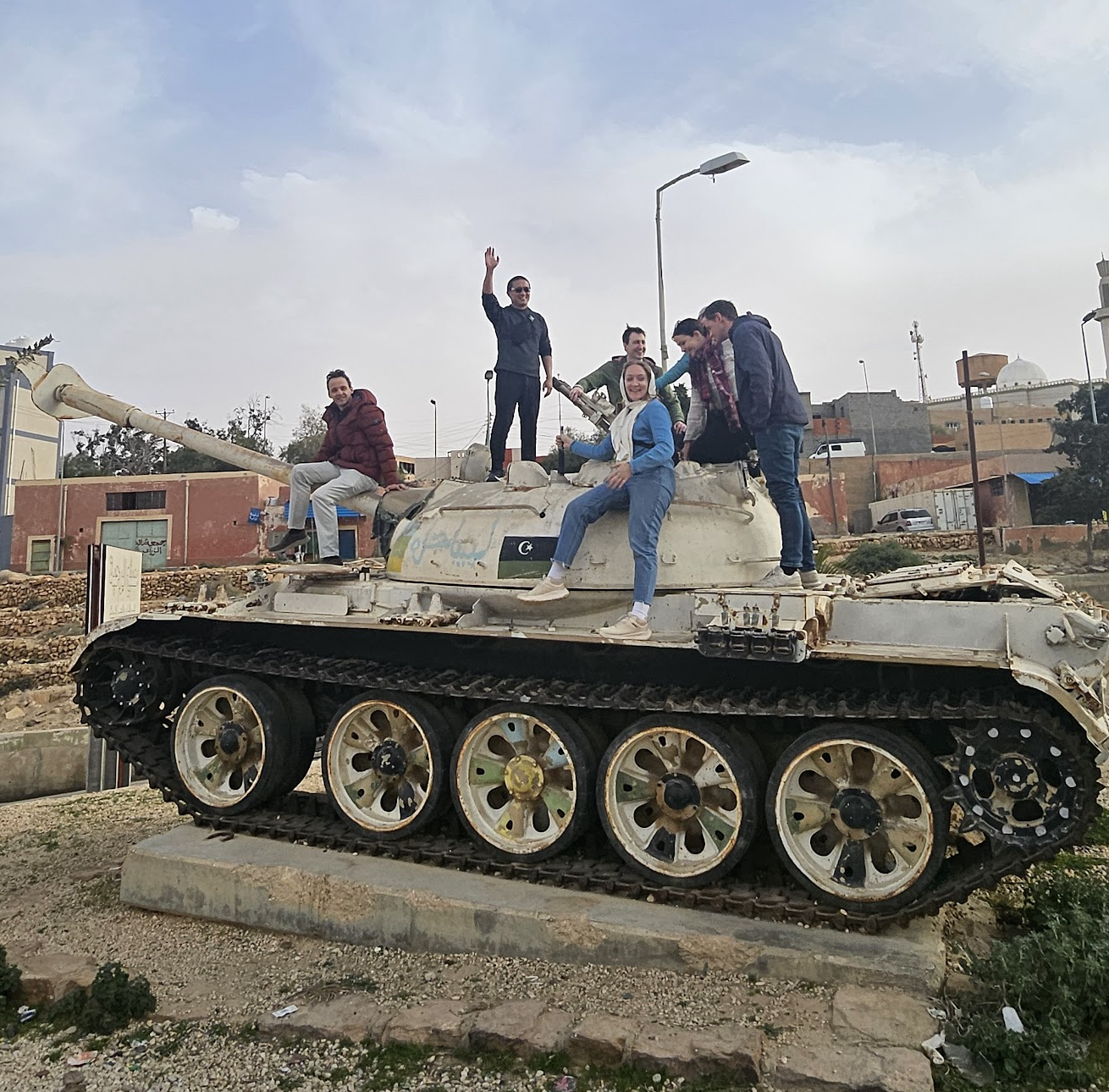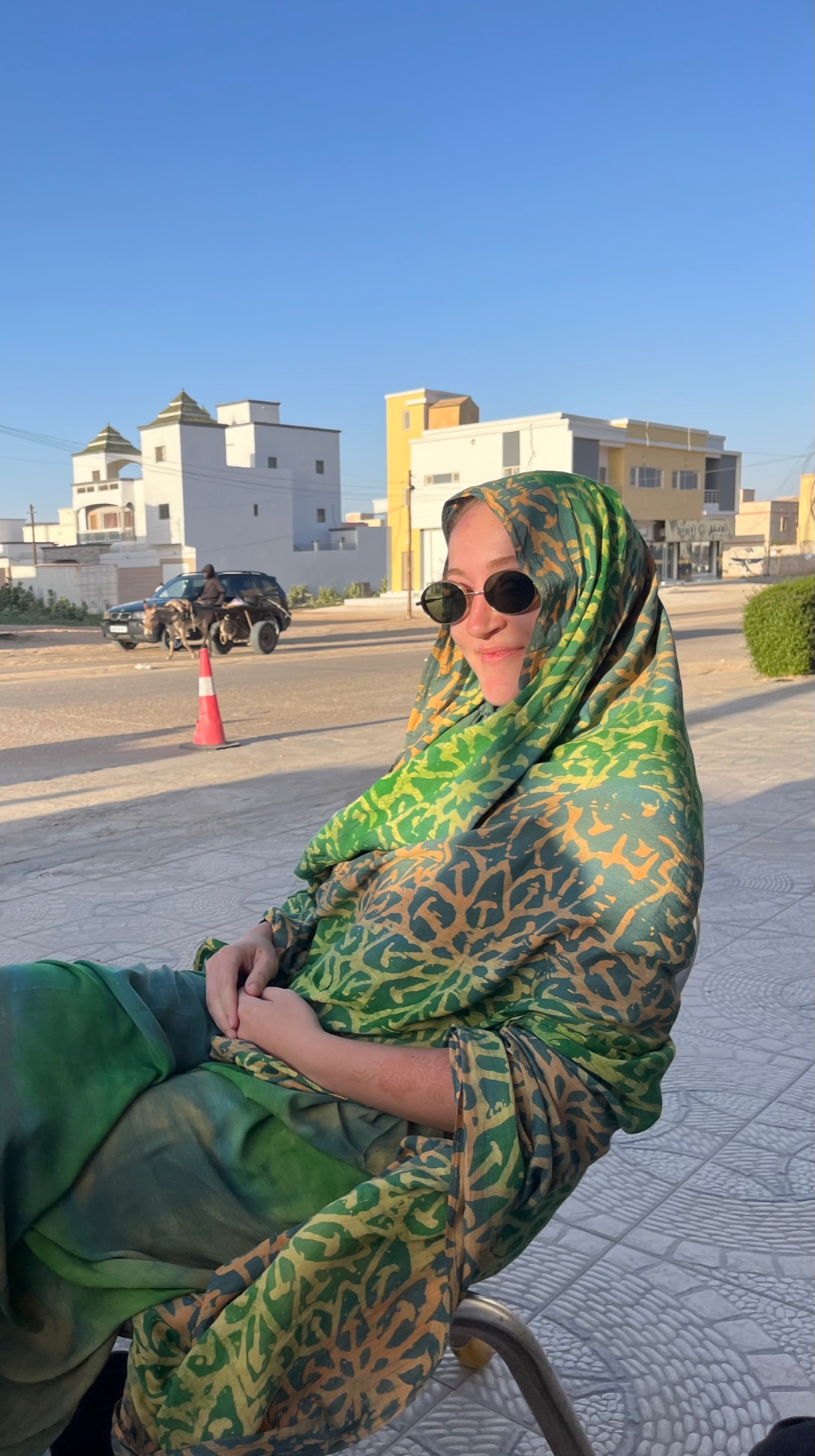Here are a few pointers on how to act and what to expect while you're traveling in Libya, that we think will help you to get the most out of your experience.
1. Don’t expect a budget-friendly quick trip
Travelers are often shocked to see how much even a 1-2 day trip into Libya will cost them. With expensive permits and tourist police escorts required by the government, Libya is not a cheap travel destination. And if you’re planning to include a visit to Eastern Libya as well, those permits costs double. The best way to save some money is by traveling with friends, or joining a group tour, where you can share the costs of permits, escorts, guides, and transportation. However, once you are in the country, the prices are not excessive. A dinner at a nice restaurant will cost about $8-$15, and as tourism in Libya is not common these days, you don’t see huge markups for foreigners in the markets.
2. Do carry your passport/visa on you at all times
There are many police checkpoints (both formal and informal) in Tripoli and on the roads outside of the city. One of the benefits of having tourist police is that they will handle these stops and document checks for you. If you are part of a group tour, you likely won’t even notice that most of the checks are happening! With your guides handling the interactions with police, you most likely won’t be asked to show your passport at every stop, however it does happen so be prepared.
3. Don’t openly discuss Gaddafi
Take this advice with a grain of salt. Some people will happily talk to you about this era, you just need to feel it out. Often with younger people the topic is not as sensitive, but should still be approached cautiously, and once you’ve already had a bit of back and forth with them. For many, this was a very dark time with limited freedoms, friends and family members disappearing, and they felt neglect and disrespect from a self-serving leader. For others, they view this as Libya’s most prosperous time and think they had more freedoms and better access to healthcare and education. Because there are wildly differing opinions, it is best to start a conversation from a neutral position of curiosity. Overall, most Libyans understand the intrigue surrounding the Gaddafi era, but they don’t want Libya to be known for this, and you don’t want it coming off as you’re treating the country as a novelty or a theme park. They want tourists to appreciate the country’s culture and rich history.
4. Do dress conservatively
While you will see people dressed in western clothes in Libya, people are still dressed conservatively. Men are not wearing shorts, and women are covering their legs and arms. I personally wear a headscarf when I am in Libya as 99% of the women you see are also covering their heads. I do this to blend in and to respect the local norms and the people I work with, but would I be fine if I didn’t wear one? Yes, in all honestly as a foreigner you can dress how you want. As a tourist, you are constantly being escorted by tourist police and Libyans are not likely to start a confrontation, so in all likelihood no one is going to harass you. However, I have been told by older locals that they will feel disrespected if you are showing too much skin, and that you will draw some unwanted attention to yourself. T-shirts are okay, but it is best to show appreciation and respect by wearing long pants, for both men and women.
5. Don’t expect people to speak Italian
Many people assume that because Libya was a former Italian colony that people will speak Italian. While you might occasionally run into some older people who still speak it, it is not common. The Italian colonization of Libya lasted from 1911 to 1943, and was met with a lot of resistance by the Libyan people. While Italian was the official language until Libya’s independence in 1951, it was not long enough for the language to truly take a lasting root, and the subsequent regimes placed the importance back on Arabic. Of course, if you are speaking Italian with your travel companions, this is not an issue!
6. Do keep your voice down
After spending some time in Libya, you’ll notice that the people are very calm and quiet (which is shocking considering the amount of espresso many of them drink!). Even in the busy market of the old city, you won’t hear shopkeepers shouting at you to take a look at their wares. People might say something to you if you enter their shop, but if you say no just one time, they leave you alone – a huge contrast from the nature of many other North African markets! Of course, people still talk and laugh with their companions in restaurants, but it doesn’t reach the levels you hear in many western restaurants, and you’ll never hear someone shouting to their friend from across the room or the street. It can be easy to get carried away but try to respect the local norms by being aware of how loud you’re being. No one will shame you if you are too loud, but you might get some dirty looks! And it might just be a bit embarrassing for you and whoever you’re with.
Wanting to travel to Libya yourself? Check out our Libya group tours here! We also arrange private tours for solo-travelers and groups. We take care of all arrangements including your Letter of Invitation and making the evisa process easy. It’s a great time to visit Libya!



